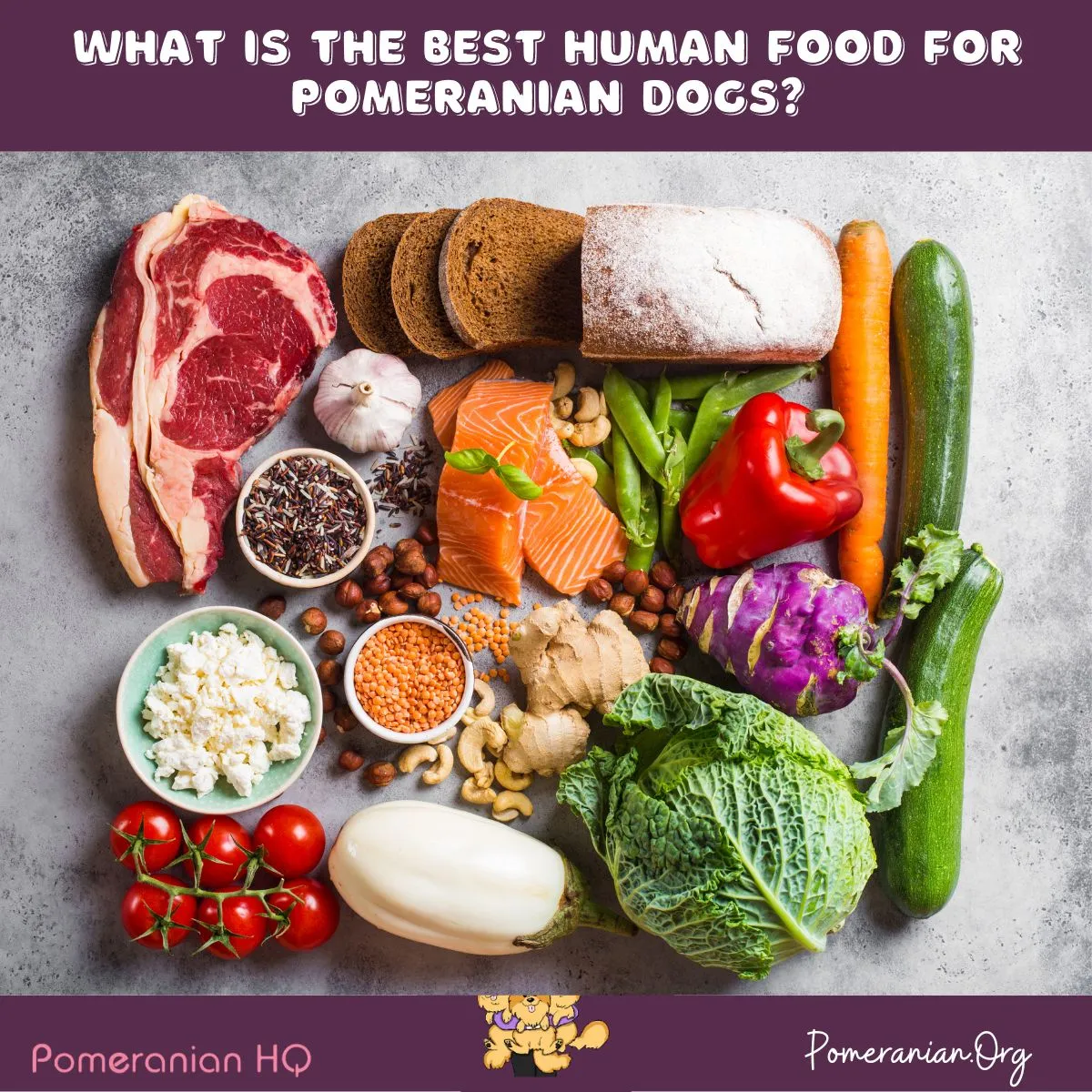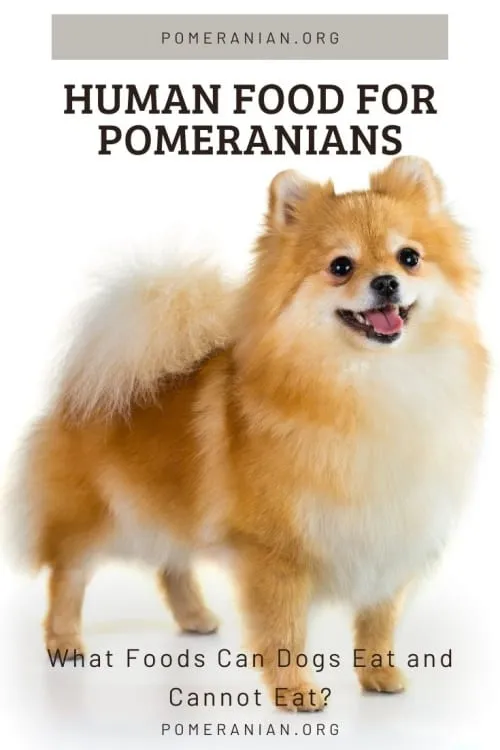Many Pomeranian owners often wonder, “What Can Pomeranians Eat That Is Human Food?” It’s a common question, especially when you’re preparing meals and your furry friend looks up at you with those irresistible eyes. While it’s tempting to share scraps from your plate, understanding which human foods are safe and which are dangerous for your beloved Pomeranian is crucial for their health and well-being. This guide delves into the specifics, helping you make informed decisions about your Pomeranian’s diet.
Pomeranians, like all dogs, have specific dietary needs that differ from humans. While some human foods can be a healthy and delightful addition to their diet in moderation, others can pose serious health risks. It’s essential to educate yourself and everyone in your household about these distinctions. Remember, a well-fed Pomeranian is a happy and healthy one, and knowing what are good for dogs to eat is the first step towards ensuring their optimal nutrition.
Understanding Pomeranian Dietary Needs and Human Food
Pomeranians can safely consume a variety of human foods, primarily animal proteins and small amounts of certain carbohydrates. However, foods loaded with caffeine, excessive sugar, high sodium, artificial additives, or preservatives should always be off-limits. Being aware of safe and unsafe options, as well as those that should only be offered occasionally, is vital for managing your Pomeranian’s diet effectively. For instance, turkey, chicken, fish, and bison are generally safe, whereas crackers or bread should only be given as rare treats. Some human foods, such as macadamia nuts, grapes, and chocolate, are strictly forbidden due to their toxic properties.
Pomeranians are particularly susceptible to food allergies, making it even more important to scrutinize the chemicals and additives present in human foods. Ingredients like caffeine, MSG, high salt levels, xylitol (a common sugar substitute), and various artificial additives can be detrimental. To prevent accidental ingestion of harmful foods or table scraps, it’s wise to establish clear rules for visitors regarding feeding your Pomeranian. Ideally, incorporating home-cooked meals alongside a raw diet can offer optimal health benefits. If this isn’t feasible, selecting high-quality commercial dog food brands like Royal Canin or Purina, and carefully checking labels for harmful ingredients, is the next best approach.
 A small, fluffy Pomeranian dog looking happy and healthy after eating.
A small, fluffy Pomeranian dog looking happy and healthy after eating.
Safe Human Foods Pomeranians Can Enjoy Regularly
If you’ve ever offered your Pomeranian a piece of human food, you know how eagerly they’ll accept it. This makes it entirely your responsibility to distinguish between safe and harmful options. Creating a clear list of safe and unsafe foods and ensuring everyone in your home is aware of these guidelines is a proactive step towards protecting your pet. Displaying these lists where your dogs are fed can serve as a constant reminder.
Here’s a comprehensive list of human foods you can safely share with your Pomeranian almost anytime, forming a key part of “what can pomeranians eat that is human food”:
- Proteins: Turkey, chicken, fish (cooked and deboned), bison, lean hamburger meat, venison, crawfish, shrimp, pork, beef liver, lamb, eggs (cooked).
- Vegetables: Asparagus, carrots, beets, bell peppers, green beans, kale, broccoli, cauliflower, cucumber, lettuce, zucchini, peas, yams, potatoes.
- Fruits: Watermelon (seedless), strawberries, raspberries, mangoes (peeled, pitted), blueberries, kiwi fruit, plums (pitted), pineapple (peeled, cored), honeydew melon (seedless), cantaloupe (seedless), apples (cored, seedless), bananas, peaches (pitted), pears (cored, seedless), nectarines (pitted).
- Grains/Other: Quinoa, rice, pasta, peanuts (unsalted), peanut butter (xylitol-free), cheese (in moderation), honey (in moderation), cottage cheese, flaxseeds, sunflower seeds, cashews (unsalted).
It’s important to remember that when feeding fruits like nectarines, peaches, or apples, the seeds or pits must always be removed as they can contain cyanide and pose a choking hazard. This extensive list demonstrates that providing a balanced diet with a variety of whole, natural foods is achievable for both humans and their canine companions, contributing to overall health. For a more detailed look into your dog’s daily nutritional intake, consider what should a dog eat in a day.
 A happy Pomeranian dog sitting beside a bowl of fresh, healthy human food options.
A happy Pomeranian dog sitting beside a bowl of fresh, healthy human food options.
Human Foods for Occasional Treats
While the following foods are generally safe for Pomeranians, they should be offered only as occasional treats rather than a regular part of their diet. This is due to their lower nutritional value or higher fat/sugar content compared to whole, natural foods. Think of these as special indulgences.
This category includes:
- Crackers (plain, unsalted)
- Bread (plain, white or whole wheat, no added sugar or fats)
- Waffles (plain, small amounts)
- Popcorn (air-popped, unsalted, unbuttered)
- Bacon (small, cooked pieces, less fatty)
- Marshmallows (very small, rare treats)
- Guava (in moderation)
- Coconut (fresh, shredded, in moderation)
- Potato chips (very small, unsalted, unseasoned pieces)
- Maple syrup (a tiny dab, rarely)
As an expert, I would advise extreme caution with these items, or even suggest avoiding them entirely. However, the decision ultimately rests with each individual owner. It’s crucial to understand what are the best foods for dogs to eat to make informed choices.
Human Foods to Avoid or Offer with Extreme Caution
On the other side of the spectrum are human foods that fall into a “grey area.” While not outright toxic, they are best avoided or given in extremely small quantities, with careful monitoring for any adverse reactions. These foods often contain ingredients that can be difficult for a Pomeranian’s digestive system to process or have potential hidden dangers.
Foods that are usually meant to be avoided include:
- Processed Meats: Meatloaf, spam, sausages, ham, deli meats, hot dogs. These are often high in sodium, preservatives, and unhealthy fats.
- Dairy/Processed Foods: Processed cheese, macaroni and cheese, ice cream. High in fat, sugar, and lactose, which many dogs are intolerant to.
- Nuts: Almonds, pistachios. While not as toxic as macadamias, they can be choking hazards and are high in fat, potentially causing pancreatitis.
- Other: Pickles (high sodium), wheat (can be an allergen for some dogs), corn (can be an allergen), tacos (contain spices and ingredients that are unhealthy for dogs), margarine (unhealthy fats), infant formula (not formulated for dogs).
It’s always safer to err on the side of caution with these items. If you choose to offer any, do so in minuscule amounts and observe your Pomeranian closely for any signs of digestive upset, allergies, or other negative effects.
Human Foods You Must Never Feed Your Pomeranian
This is the most critical list, outlining human foods that are highly toxic or outright deadly to Pomeranians. These items must never be fed under any circumstances, regardless of the quantity. Every owner, family member, and visitor must be aware of these dangers to ensure your Pomeranian’s safety.
Foods you should absolutely never feed your Pomeranians:
- Nuts: Macadamia nuts, walnuts, pecans. These can cause neurological symptoms, weakness, vomiting, and tremors.
- Fruits/Related: Grapes (including raw, jelly, jam, and juices), currants, raisins, cherries (pits), fruit pits (e.g., from avocados, peaches, plums). Grapes and raisins can cause acute kidney failure.
- Alliums: Chives, leeks, shallots, garlic, onions. These cause red blood cell damage and can lead to anemia.
- Chocolate & Caffeine: Chocolate (all types), coffee grounds, anything containing caffeine. These contain methylxanthines, which are highly toxic to dogs, causing vomiting, diarrhea, tremors, seizures, and even death.
- Spices/Other: Cinnamon, wild mushrooms, tomato sauce (due to acidity and other ingredients), yeast dough (can expand in the stomach, causing bloating and potentially a life-threatening condition), anything with xylitol (a specific type of sugar substitute found in many sugar-free products like gum, candy, and peanut butter, highly toxic, causing rapid insulin release leading to hypoglycemia and liver failure).
- Restaurant Food: Generally, all restaurant food should be avoided as it often contains high levels of sodium, fats, spices, and unknown ingredients that are unsuitable or even dangerous for dogs.
Understanding these absolute no-gos is paramount for anyone asking “what can pomeranians eat that is human food.” If you suspect your Pomeranian has ingested any of these items, contact your veterinarian immediately.
 A small, cream-colored Pomeranian puppy looking curious and innocent.
A small, cream-colored Pomeranian puppy looking curious and innocent.
Dangerous Chemicals and Additives in Human Food
Even when opting for seemingly “all-natural” whole foods, it’s possible for traces of certain chemicals to be present due to modern agricultural practices. Some of these chemicals and additives can be harmful to Pomeranians. Being vigilant about ingredients is crucial.
Key chemicals and additives to avoid include:
- Caffeine: Stimulant toxic to dogs.
- MSG (Monosodium Glutamate): Often referred to as Chinese “super salt,” can cause issues for sensitive dogs.
- High levels of salt: Can lead to sodium ion poisoning.
- Xylitol: A specific type of sugar alcohol that is extremely toxic to dogs, causing hypoglycemia and liver damage.
Regarding additives, many human food ingredients that are harmless to people can be dangerous for dogs. Pomeranians are particularly susceptible to food allergies, often triggered by these very additives. Additives that should be strictly avoided in human food given to your Pomeranian include:
- BHT (Butylated Hydroxytoluene) and BHA (Butylated Hydroxyanisole): Synthetic antioxidants used as preservatives.
- Corn and wheat gluten: Common allergens for many dogs.
- Propylene glycol: A humectant and solvent, also found in antifreeze (though food-grade is different, it’s still best avoided).
- Ethoxyquin: A chemical antioxidant preservative.
- Rendered fat: Often of poor quality and can be hard to digest.
- Food dyes (Blue 2, Red 40, Yellow 5 and 6, 4-MIE): Artificial colors with no nutritional value and potential health concerns.
These chemicals and ingredients are prevalent in modern human cuisine, making it essential for you and your family to understand both good and bad ingredients to safeguard your Pomeranian when sharing food.
Preventing Others from Feeding Your Pomeranian
When family and friends visit, your Pomeranians are likely overjoyed, running around excitedly and seeking attention. They quickly learn that begging for human food, whether snacks or table scraps, is an effective way to get what they want. However, it’s crucial to prevent visitors from being tempted to feed them.
As the owner, you are the expert on what human foods are safe and unsafe for your Pomeranians. You cannot expect visitors to possess the same degree of knowledge. Therefore, establishing clear household rules for feeding animals is essential. Consider one of these two options:
- Anyone not living in the house must check with you before offering your Poms any food.
- Only household members are permitted to feed your Pomeranians.
These simple rules can significantly help in keeping your Pomeranians safe from accidental harm, especially when guests are not aware of what human vegetables can dogs eat or other safe human foods.
 A small Pomeranian dog looking up attentively at a human's hand, possibly hoping for a treat.
A small Pomeranian dog looking up attentively at a human's hand, possibly hoping for a treat.
Addressing a Spoiled Pomeranian
If your Pomeranian refuses to eat their regular dog food in favor of human food, it’s often a sign that they’ve become “spoiled.” In such cases, the dog, rather than you, is making the dietary decisions. To rectify this, temporarily cease offering human food. Monitor their behavior; their improved attitude may signal when it’s appropriate to reintroduce small, safe amounts of human food.
While some dogs may prefer human food, it’s vital to remember that commercial dog food is formulated to provide the essential vitamins, minerals, and other nutrients necessary for a dog’s comprehensive health. Human foods may contain some of these nutrients but often at different levels or may lack others entirely. A balanced commercial diet or a carefully crafted homemade diet ensures your Pomeranian receives all the necessary components for a healthy life.
Ensuring the Best Quality Food for Your Pomeranian
For optimal health, feed your Pomeranian the best food possible. For Pomeranians over 12 months of age, a balanced diet consisting of home-cooked meals and raw feeding is ideal. If this approach isn’t practical, there are many reputable commercial dog food brands available that can keep your pet healthy and happy. When selecting commercial food, it’s crucial to look for labels that explicitly state they add minimal or no food additives to their recipes. A long list of unpronounceable chemicals often indicates that the food contains harmful additives, including fillers like sawdust, which are unfit for canine consumption.
Always read ingredient labels carefully when researching healthy dog foods. Be wary of unethical dog food companies that cut costs by including unsuitable ingredients. Your veterinarian is an excellent resource for information and can often recommend trusted local companies that offer quality dog food.
For Pomeranian puppies, high-quality commercial dog food is generally recommended. Brands like Royal Canin, Purina, Nature’s Recipe, Wellness Complete, Blue Wilderness, and Hills are often considered good starting points. Always prioritize brands with a sterling reputation for providing safe and nutritious food. Knowing what is good for my dog to eat is about making informed decisions that contribute to their long-term health.
Conclusion
Navigating what human foods your Pomeranian can eat requires diligence, education, and consistency. By understanding the distinctions between safe, occasional, and forbidden human foods, you can significantly contribute to your pet’s health and happiness. Always prioritize their well-being, adhering to a diet that is both nutritious and free from harmful substances. When in doubt, consult your veterinarian for personalized dietary advice. Remember, a responsible owner ensures their Pomeranian enjoys a long, healthy life, free from preventable dietary risks. Continue to explore reliable resources and make informed choices to provide the best care for your beloved Pomeranian.
References and Further Reading:
- Dochlaggie. Post first published on January 20, 2023. Human Food for Pomeranians: What Foods Can Dogs Eat and Cannot Eat? Retrieved from pomeranian.org.
- Official Standard of the Pomeranian (AKC). American Kennel Club, 2011.
- English Kennel Club Pomeranian Breed Standard, 2017.
- Denise Leo, The Pomeranian Handbook.
- Milo G. Denlinger “The Complete Pomeranian.”
- Kimbering Pomeranians “1891-1991”.
- William Taplin’s “The Sportsman’s Cabinet.”
- E. Parker “The Popular Pomeranian.”
- Lilla Ives “Show Pomeranians.”
